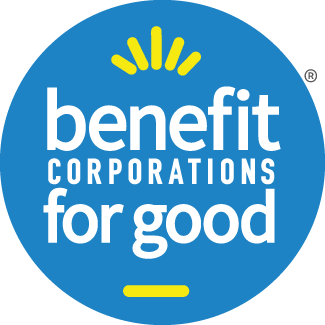How an Oregon Engineering Firm Impacts Climate Change through Racial Inclusivity
Meet David Burchfield, president of Burch Energy, an innovative engineering firm working to normalize racial inclusivity in the clean energy economy while mitigating the effects of climate change. Burch Energy is a certified Benefit Corporation for Good.
Creating a triple bottom line company is one thing. But keeping those values alive long after the founders have left is something else again. It’s one of the reasons why clean energy engineering firm Burch Energy became a certified Benefit Corporation for Good.
Using a third-party standard to measure a business’s values helps company leaders make good decisions. And in the case of certified Benefit Corporations for Good, you are supported by a community that wants you to succeed in creating meaningful change in the world.
We recently talked with founder David Burchfield about becoming part of the certified BCFG community. Here’s what he had to say about it, the reasons for doing it and most importantly, its impact on stakeholders of the firm.
1. What motivated you to become a triple bottom line company?
The desire to create a company that will last long after the founders were out of the picture. We believe a triple bottom line company is the surest way to build and sustain a lasting legacy that offers the most value for stakeholders.
2. Was it difficult getting internal support for moving toward this model?
No, it wasn’t. From the very beginning, we have always resolved to be a company that will exist to do good.
3. How long did it take you to officially become a triple bottom line company?
A couple of weeks, between determining our eligibility, submitting our application and getting approved.
4. Have you seen any change in culture since you became a triple bottom line company?
Yes, but admittedly our culture aligned with that of a triple bottom line company prior to our application. Our certification makes us even more conscious of everything we do now as a company.
5. Have you experienced any positive outcomes since becoming a triple bottom line company?
Yes. The boost in employee morale is one thing that is easily evident now.
6. Would you recommend this business model to others? Why or why not?
Yes, we would recommend this to others. This model provides some accountability, preventing companies from paying mere lip service for the good they do.
7. What is the most important trait to have as a conscientious leader of a triple bottom line company?
Honesty – still remains the best policy. When stakeholders can trust what we say we will do, then everything else follows from that. As a leader, your word is your bond.
8. What lessons have you learned in the process?
It takes a conscious and deliberate effort to be a company that exists for good, and therefore it’s important to take the necessary steps for that to happen.
9. Is being a triple bottom line company part of your current brand message?
Yes, it is part of our current brand message. However, we are more concerned about living the values and principles we espouse since that is what can easily be seen and critiqued by stakeholders.
10. What is the single best reason you'd give for another company or peer to become a triple bottom line company?
Knowing that your impact will outlast you, and possibly, positively impact future generations.
You can learn more about Burch Energy here.
You read more about why other business leaders chose to become a certified benefit corporation here.
And you can discover the 6 simple steps to becoming a certified benefit corporation here.
~benefitcorporationsforgood.com~

